Antibodies, Assay Kits, Biology Cells, Brd4 Antibody, Clia Kits, Ctip Antibody, Devices, DNA, DNA Templates, Elisa Kits, Enzymes, Equipments, Exosomes, Irak3 Antibody, Isotypes, Mmp14 Antibody, Nedd8 Antibody, Nmnat1 Antibody, Nse Antibody, Olig2 Antibody, Otx2 Antibody, Panel, Particles, PCR, Pcr Kits, Reagents, Recombinant Proteins, Rfp Antibody, Ria Kits, RNA, Setd2 Antibody, Sod2 Antibody, Stat5 Antibody, Trpa1 Antibody, Vector & Virus
The use of saliva specimens for detection of influenza A and B viruses by rapid influenza diagnostic tests.
Diagnostic exams for influenza an infection generally use nasopharyngeal swabs (NPS) despite the fact that these are invasive to acquire. As a substitute specimen, we evaluated the diagnostic usefulness of saliva samples with speedy influenza diagnostic exams (RIDTs).
Each NPS and saliva samples had been collected from 385 influenza suspected sufferers and analyzed utilizing Sofia Influenza A+B Fluorescence Immunoassay (Quidel Company, San Diego, CA, USA), ichroma TRIAS Influenza A+B (Boditech, Chuncheon, Korea), SD Bioline Influenza Ag (Customary Diagnostic, Yonggin, Korea), BinaxNOW Influenza A/B antigen equipment (Alere Inc., Waltham, MA, USA), and real-time reverse transcriptase PCR (RT-PCR).
Of the 385 sufferers, 31.2% (120/385) had been constructive for influenza A, and seven.5% (29/385) had been constructive for influenza B virus with saliva or NPS by RT-PCR.
The diagnostic sensitivity was barely greater in NPS than in saliva samples for each influenza A and B by the entire 4 RIDTs. The diagnostic sensitivities of Sofia and ichroma TRIAS had been considerably superior to these of the opposite typical influenza RIDTs with each sorts of pattern. The sensitivities of Sofia and ichroma TRIAS with saliva specimens had been similar to the sensitivities of the opposite two typical RIDTs with NPS specimens. The simultaneous use of saliva and NPS samples exhibited improved sensitivity from 10.0% to 13.3% for influenza A and from 10.3% to 17.2% for influenza B in comparison with utilizing NPS alone.
Evaluation on willingness to pay for HIV antibody saliva speedy take a look at and associated elements
OBJECTIVE
To know the willingness to pay for HIV antibody saliva speedy take a look at and its influential elements amongst folks searching for counsel and HIV take a look at, STD clinic sufferers, college college students, migrant folks, feminine intercourse staff (FSWs), males who’ve intercourse with males (MSM) and injecting drug customers (IDUs).
METHODS
An nameless questionnaire survey was performed amongst 511 topics within the 7 teams chosen by totally different sampling strategies, and 509 legitimate questionnaires had been collected.
RESULTS
Nearly all of topics had been males (54.8%) and aged 20-29 years (41.5%). Among the many topics, 60.3% had schooling stage of highschool or above, 55.4% had been single, 37.3% had been unemployed, 73.3% had month-to-month expenditure <2 000 Yuan RMB, 44.2% had obtained HIV take a look at, 28.3% knew HIV saliva take a look at, 21.0% had been keen to obtain HIV saliva take a look at, 2.0% had obtained HIV saliva take a look at, only one.0% had purchased HIV take a look at equipment for self-test, and 84.1% had been keen to pay for HIV antibody saliva speedy take a look at. Univariate logistic regression evaluation indicated that topic group, age, schooling stage, employment standing, month-to-month expenditure stage, HIV take a look at expertise and willingness to obtain HIV saliva take a look at had been correlated statistically with willingness to pay for HIV antibody saliva speedy take a look at. Multivariate logistic regression evaluation confirmed that topic group and month-to-month expenditure stage had been statistically correlated with willingness to pay for HIV antibody saliva speedy take a look at.
CONCLUSIONS
The willingness to pay for HIV antibody saliva speedy take a look at and acceptable value of HIV antibody saliva speedy take a look at various in numerous areas and populations. Completely different populations could have totally different willingness to pay for HIV antibody saliva speedy take a look at;the affordability of the take a look at might affect the willingness to pay for the take a look at
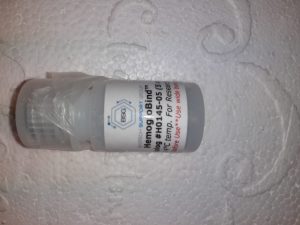
The α-take a look at: speedy cell-free CD4 enumeration utilizing complete saliva.
There’s an pressing want for reasonably priced CD4 enumeration to observe HIV illness. CD4 enumeration is out of attain in resource-limited areas as a result of time and temperature restrictions, technical sophistication, and price of reagents, particularly monoclonal antibodies to measure CD4 on blood cells, the one at the moment acceptable methodology. A generally used cost-saving and time-saving laboratory technique is to calculate, relatively than measure sure blood values. For instance, LDL ranges are calculated utilizing the measured ranges of whole ldl cholesterol, HDL, and triglycerides. Thus, identification of cell-free correlates that straight regulate the variety of CD4(+) T cells might present an correct methodology for calculating CD4 counts as a result of physiological relevance of the correlates.
The variety of stem cells that enter blood and are destined to turn into circulating CD4(+) T cells is decided by the chemokine CXCL12 and its receptor CXCR4 as a result of their affect on locomotion. The method of stem cell locomotion into blood is moreover regulated by cell floor human leukocyte elastase (HLE(CS)) and the HLE(CS)-reactive energetic α(1)proteinase inhibitor (α(1)PI, α(1)antitrypsin, SerpinA1).
In HIV-1 illness, α(1)PI is inactivated as a result of illness processes. Within the early asymptomatic classes of HIV-1 illness, energetic α(1)PI was discovered to be under regular in 100% of untreated HIV-1 sufferers (median=12 μM, and to realize regular ranges throughout the symptomatic classes. This sample has been attributed to immune inactivation, to not inadequate synthesis, proteolytic inactivation, or oxygenation.
We noticed that in HIV-1 topics with >220 CD4 cells/μl, CD4 counts had been correlated with serum ranges of energetic α(1)PI (r(2)=0.93, p<0.0001, n=26) and inactive α(1)PI (r(2)=0.91, p<0.0001, n=26). Administration of α(1)PI to HIV-1 contaminated and uninfected topics resulted in dramatic will increase in CD4 counts suggesting α(1)PI participates in regulating the variety of CD4(+) T cells in blood. With stimulation, complete saliva comprises ample serous exudate (plasma containing proteinaceous materials that passes via blood vessel partitions into saliva) to permit measurement of energetic α(1)PI and the correlation of this measurement is proof that it’s an correct methodology for calculating CD4 counts. Briefly, sialogogues equivalent to chewing gum or citric acid stimulate the exudation of serum into complete mouth saliva. After stimulating serum exudation, the exercise of serum α(1)PI in saliva is measured by its capability to inhibit elastase exercise.
Porcine pancreatic elastase (PPE) is a available cheap supply of elastase. PPE binds to α(1)PI forming a one-to-one complicated that stops PPE from cleaving its particular substrates, considered one of which is the colorimetric peptide, succinyl-L-Ala-L-Ala-L-Ala-p-nitroanilide (SA(3)NA). Incubating saliva with a saturating focus of PPE for 10 min at room temperature permits the binding of PPE to all of the energetic α(1)PI in saliva. The ensuing inhibition of PPE by energetic α(1)PI could be measured by including the PPE substrate SA(3)NA.
Though CD4 counts are measured when it comes to blood quantity (CD4 cells/μl), the focus of α(1)PI in saliva is expounded to the focus of serum in saliva, to not quantity of saliva since quantity can fluctuate significantly throughout the day and individual to individual. Nonetheless, just about all of the protein in saliva is because of serum content material, and the protein content material of saliva is measurable. Thus, energetic α(1)PI in saliva is calculated as a ratio to saliva protein content material and is termed the α(1)PI Index. Outcomes introduced herein display that the α(1)PI Index gives an correct and exact physiologic methodology for calculating CD4 counts.
 Tapered Micro Tips |
|||
| 0-120-0007 | Biologics | 3 mm | EUR 344 |
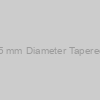 Tapered Micro Tips 5 mm Diameter Tapered Titanium Micro Tip |
|||
| 0-120-0008 | Biologics | 5 mm | EUR 358 |
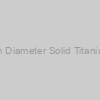 10 mm Diameter Solid Titanium Tip |
|||
| 0-120-0009 | Biologics | 10 mm | EUR 504 |
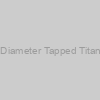 13 mm Diameter Tapped Titanium Tip |
|||
| 0-120-0010 | Biologics | 13 mm | EUR 595 |
 13 mm Diameter Solid Titanium Tip |
|||
| 0-120-0011 | Biologics | 13 mm | EUR 533 |
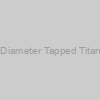 19 mm Diameter Tapped Titanium Tip |
|||
| 0-120-0012 | Biologics | 19 mm | EUR 639 |
 19 mm Diameter Solid Titanium Tip |
|||
| 0-120-0013 | Biologics | 19 mm | EUR 570 |
 25 mm Diameter Tapped Titanium Tip |
|||
| 0-120-0014 | Biologics | 25 mm | EUR 682 |
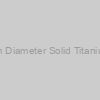 25 mm Diameter Solid Titanium Tip |
|||
| 0-120-0015 | Biologics | 25 mm | EUR 614 |
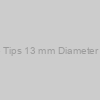 Flat Replaceable Tips 13 mm Diameter Flat Titanium Tip |
|||
| 0-120-0016 | Biologics | 13 mm | EUR 86 |
|
Description: use with corresponding Tapped Tips and Tapped Extender Tips |
|||
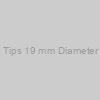 Flat Replaceable Tips 19 mm Diameter Flat Titanium Tip |
|||
| 0-120-0017 | Biologics | 19 mm | EUR 92 |
|
Description: use with corresponding Tapped Tips and Tapped Extender Tips |
|||
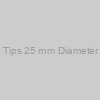 Flat Replaceable Tips 25 mm Diameter Flat Titanium Tip |
|||
| 0-120-0018 | Biologics | 25 mm | EUR 100 |
|
Description: use with corresponding Tapped Tips and Tapped Extender Tips |
|||
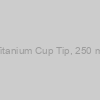 Titanium Cup Tip, 250 ml |
|||
| 0-120-0019 | Biologics | 250 ml | EUR 1377 |
|
Description: includes Interface Washers |
|||
) Microtube Tray, 8 Position (for 250 ml Cup Tip) |
|||
| 0-120-0021 | Biologics | each | EUR 113 |
|
Description: includes Interface Washers |
|||
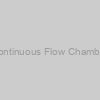 Continuous Flow Chamber |
|||
| 0-120-0026 | Biologics | each | EUR 774 |
|
Description: includes Interface Washers |
|||
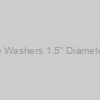 Interface Washers 1.5” Diameter, 5/Pkg |
|||
| 0-120-003 | Biologics | 1.5'' Diameter | EUR 31 |
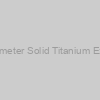 13 mm Diameter Solid Titanium Extender Tip |
|||
| 0-120-0032 | Biologics | 13 mm | EUR 301 |
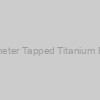 13 mm Diameter Tapped Titanium Extender Tip |
|||
| 0-120-0033 | Biologics | 13 mm | EUR 362 |
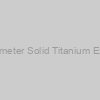 19 mm Diameter Solid Titanium Extender Tip |
|||
| 0-120-0034 | Biologics | 19 mm | EUR 315 |
 19 mm Diameter Tapped Titanium Extender Tip |
|||
| 0-120-0035 | Biologics | 19 mm | EUR 375 |
 25 mm Diameter Solid Titanium Extender Tip |
|||
| 0-120-0036 | Biologics | 25 mm | EUR 328 |
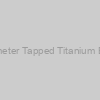 25 mm Diameter Tapped Titanium Extender Tip |
|||
| 0-120-0037 | Biologics | 25 mm | EUR 389 |
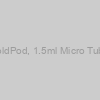 KoldPod, 1.5ml Micro Tube |
|||
| 0-120-0038 | Biologics | 1.5 ml | EUR 152 |
|
Description: Thermo conductive tube pods |
|||
 KoldPod, 15ml Conical Tube |
|||
| 0-120-0039 | Biologics | 15 ml | EUR 275 |
|
Description: Thermo conductive tube pods |
|||
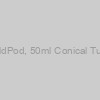 KoldPod, 50ml Conical Tube |
|||
| 0-120-0040 | Biologics | 50 ml | EUR 290 |
|
Description: Thermo conductive tube pods |
|||
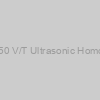 Model 150 V/T Ultrasonic Homogenizer |
|||
| 0-121-0002 | Biologics | 210-240V/50-60Hz | EUR 2920 |
|
Description: Delivers up to 150 Watts of ultrasonic power to the Titanium Tip. The Timer and Duty Cycle function increase preciosion in sample processing processing. |
|||
 Model 300 V/T Ultrasonic Homogenizer |
|||
| 0-122-0002 | Biologics | 210-240V/50-60Hz | EUR 3520 |
|
Description: Delivers up to 300 Watts of ultrasonic power to the Titanium Tip. The Timer and Duty Cycle function increase preciosion in sample. |
|||
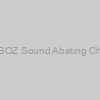 SONABOZ Sound Abating Chamber |
|||
| 0-125-0001 | Biologics | each | EUR 1020 |
|
Description: Reduces cavitational sound emitted during processing. |
|||
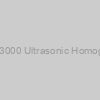 Model 3000 Ultrasonic Homogenizer |
|||
| 0-127-0002 | Biologics | 210-240V/50-60Hz | EUR 4120 |
|
Description: Delivers up to 300 Watts of ultrasonic power to the Titanium Tip and includes an intergrated Sound Abating Chmaber to reduce cavitational sound emitted during processing. The Timer and Duty Cycle function increase preciosion in sample. |
|||
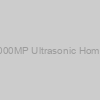 Model 3000MP Ultrasonic Homogenizer |
|||
| 0-128-0002 | Biologics | 210-240V/50-60Hz | EUR 4720 |
|
Description: Delivers up to 300 Watts of ultrasonic power to the Titanium Tip with preciosion control from a microprocessor and a graphical user interface displayed on a large (145 mm) LCD display. The integrated Sound Abating Chamber reduces cavitational sound emitted during processing. |
|||

